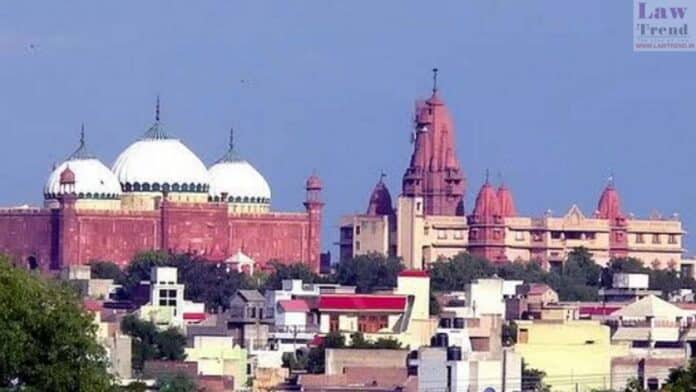In the ongoing legal battle surrounding the Krishna Janmabhoomi-Shahi Idgah dispute in Mathura, Hindu parties have contended in the Supreme Court that the plea filed by the mosque committee is not maintainable at this stage. The case was heard by a bench comprising Chief Justice Sanjiv Khanna and Justice Sanjay Kumar.
Advocate Barun Sinha, representing the Hindu parties, argued that the mosque committee should have approached the Allahabad High Court’s division bench instead of the Supreme Court following a single judge’s rejection of their plea on August 1. The single judge had ruled on the necessity to determine the “religious character” of the Shahi Idgah in a dispute involving 15 related cases.
Sinha pointed out that according to Chapter 8 of the Allahabad High Court Rules, a special appeal before the division bench of the high court would be maintainable against the order of a single judge. He argued that an appeal in the Supreme Court against the high court’s single judge bench order was not maintainable at this point, and thus, the mosque committee should have filed an intra-court appeal instead.
The Supreme Court bench postponed further hearing of the matter until after the winter break. Meanwhile, on November 29, the Chief Justice had indicated that the court would hear in-depth arguments concerning the legal standings on December 9. He expressed a prima facie opinion that an intra-court appeal might lie against the order from the high court’s single judge bench.
The mosque committee has contended that the suits filed by Hindu litigants, which seek the “removal” of the mosque alleged to have been built after demolishing a temple, are not maintainable under the Places of Worship (Special Provisions) Act of 1991. This Act generally prohibits altering the religious character of any place of worship as it existed on August 15, 1947, with an exception made only for the Ayodhya dispute.
The Allahabad High Court, in its August ruling, noted that the Act does not define “religious character” and stated that a place cannot simultaneously have dual religious characters of a temple and a mosque. The court emphasized that the religious character as it existed on Independence Day must be determined through documentary and oral evidence presented by both parties.




